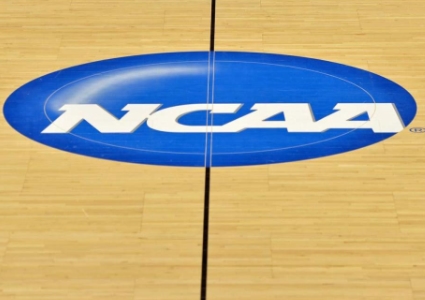Polling

Suggest an important issue not listed in this sub-category (). (Maximum 60 Characters)
Ncaa

The National Collegiate Athletic Association (NCAA) is a nonprofit entity that administers intercollegiate athletic programs for 1,268 colleges. The NCAA is accused of exploiting many young athletes because it reaps billions of dollars for itself and other private entities while denying compensation for those responsible for its success. It is said the NCAA and universities pay little to furnish the “theater, actors, lights, music and audience for a drama that is neatly measured into TV time slots. The only things the networks need to bring are their cameras and a check.” It is estimated that $19 billion is annually generated by university athletic programs through ticket sales, television contracts, endorsements and advertising.
Most scholarship athletes live in poverty conditions while attending college. Often, the demands of college sports leave little time for part-time jobs or for majoring in challenging curricula. In order to maintain academic eligibility, some universities funnel its athletes into worthless, fraudulent classes without significant attendance, studying or grading requirements. NCAA officials claim its athletes are fairly compensated with $100,000 scholarships which cover tuition, fees, room and board. Opponents disagree, saying most of these scholarships are not worth much because many universities leave athletes unprepared for post-sport careers. Many universities also do not provide health insurance to scholarship athletes, and revoke the scholarships of those who get injured or who do not perform as well as expected. Other NCAA criticisms include its practice of selling ads and product endorsements featuring a player wearing a sponsor’s clothing, or being portrayed in a video game without compensation. The NCAA is also criticized for its lack of due-process protections when taking disciplinary actions against athletes and schools.
Dealing a blow to the NCAA's current business model, the Supreme Court has recently ruled for an incremental increase in how college athletes can be compensated. This suggests that the NCAA's rules that restrict any type of compensation - including direct payment for athletic accomplishments - might no longer hold up in future antitrust challenges.
Proposed legislation: Reintroduction of H.R.2672 - NCAA Act (116th Congress 2019-2020)
Prospective Sponsor: Rep. Andre Carson (ID)
Most scholarship athletes live in poverty conditions while attending college. Often, the demands of college sports leave little time for part-time jobs or for majoring in challenging curricula. In order to maintain academic eligibility, some universities funnel its athletes into worthless, fraudulent classes without significant attendance, studying or grading requirements. NCAA officials claim its athletes are fairly compensated with $100,000 scholarships which cover tuition, fees, room and board. Opponents disagree, saying most of these scholarships are not worth much because many universities leave athletes unprepared for post-sport careers. Many universities also do not provide health insurance to scholarship athletes, and revoke the scholarships of those who get injured or who do not perform as well as expected. Other NCAA criticisms include its practice of selling ads and product endorsements featuring a player wearing a sponsor’s clothing, or being portrayed in a video game without compensation. The NCAA is also criticized for its lack of due-process protections when taking disciplinary actions against athletes and schools.
Dealing a blow to the NCAA's current business model, the Supreme Court has recently ruled for an incremental increase in how college athletes can be compensated. This suggests that the NCAA's rules that restrict any type of compensation - including direct payment for athletic accomplishments - might no longer hold up in future antitrust challenges.
Proposed legislation: Reintroduction of H.R.2672 - NCAA Act (116th Congress 2019-2020)
Prospective Sponsor: Rep. Andre Carson (ID)
Poll Opening Date
November 11, 2024
Poll Closing Date
November 17, 2024
Democracy Rules respects the privacy of your information.
See PRIVACY STATEMENT
See PRIVACY STATEMENT